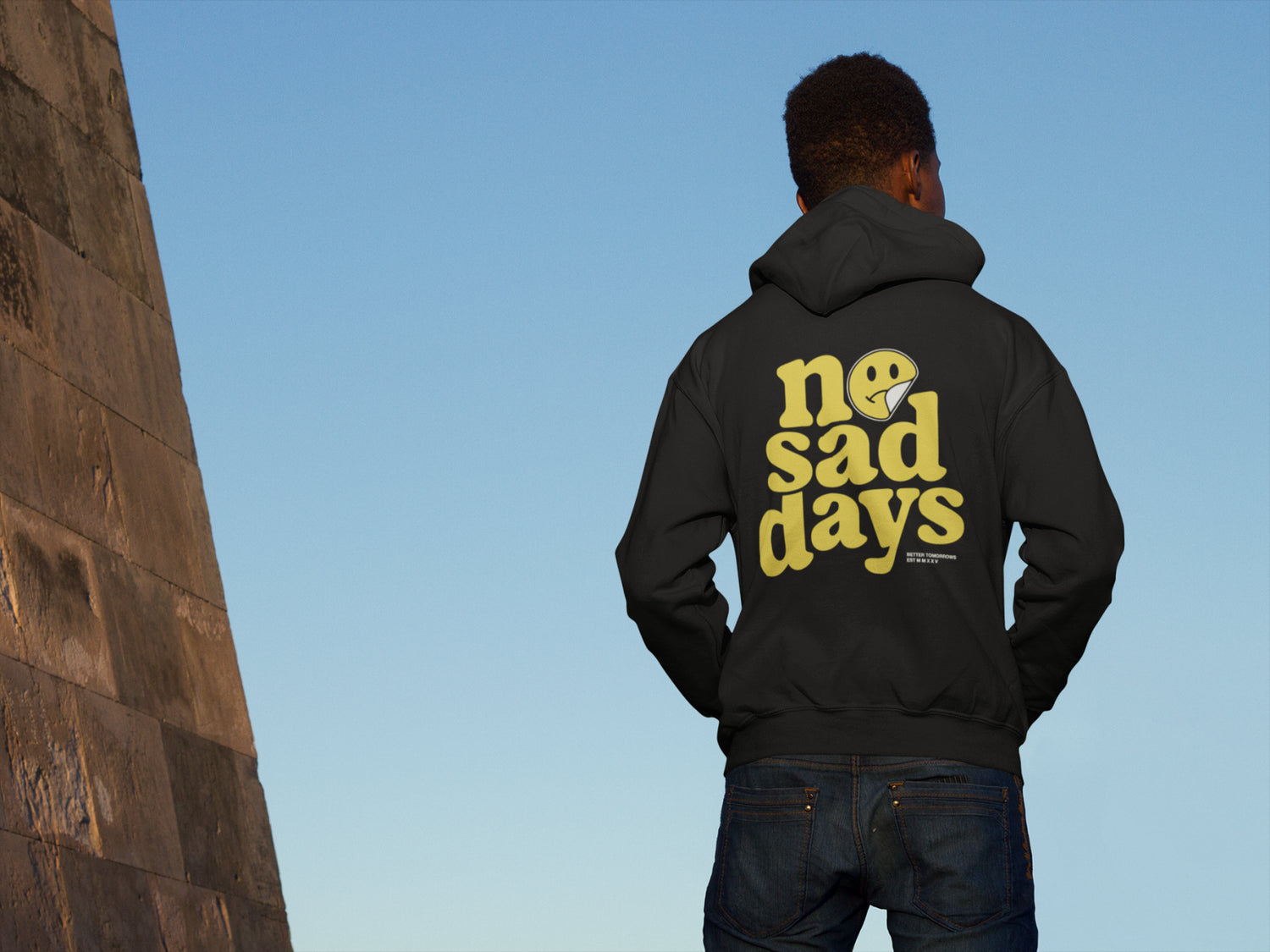We are donating 25% of all sales during Mental Health Month Until 5/30 |
We are donating 25% of all sales during Mental Health Month Until 5/30 |
We are donating 25% of all sales during Mental Health Month Until 5/30 |
We are donating 25% of all sales during Mental Health Month Until 5/30 |
Our Collections

Our Story
Let’s be real—sadness is everywhere. And while the world loves to say “break the stigma” or “it’s okay to not be okay,” most people don’t actually live by it. Mental health has become a buzzword. A trend. Something you post about once a year, then ignore the other 364 days.
We’re over it.
No Sad Days was born out of frustration, yeah—but also out of hope. Because we believe in fighting for better days, not just talking about them. We know Sad Days happen. We all have them. But we’re not here to live in them. We’re here to push through, together.
This brand is our way of saying “get back up”. It’s for the ones carrying heavy things, the ones who feel like they can’t say it out loud, and the ones trying—desperately—to turn the volume down on the noise in their head.
No Sad Days isn’t about pretending everything’s fine. It’s about choosing to move anyway. About wearing something that says “I’m still here. I’m still trying.”
We’re not perfect. We’re not polished. And we don’t do performative.
We do progress. Grit. And showing up.
Less sad days. Better tomorrows. That’s the mission.
And we’re glad you’re here.

Why No Sad Days?
-
Quality
All our garments are WRAP certified and ethically sourced. We know how brands like to cut costs and provide "one wash only" clothing but we make clothing to last for years. We stand by our quality.
You won't ever want to wear another piece of clothing outside of ours again after you try. You can also laugh at the people who spend $500 on hoodies when ours are made in the same place.
-
Cause
20% of the proceeds from every purchase made from No Sad Days will be donated to the Mindful Futures Fund where you, the supporters, and those in need, can tap into the funds for free mental health care.
We will also contribute to a wide variety of non profit organizations to help fund causes that need funding.
-
Attitude
The mental health space is full of toxic positivity and complacency. If you are seeing this we know you want to get better. That is our goal, to go above and beyond colorful instagram posts with flowers in them saying "it will be okay don't worry!" and actually doing something about it. Do no harm, but take no shit.

To know there is a brand out there who actually wants to help fight for mental health (while also making great clothes) makes me feel the future is bright. Lifelong customer.
Josh B.




















